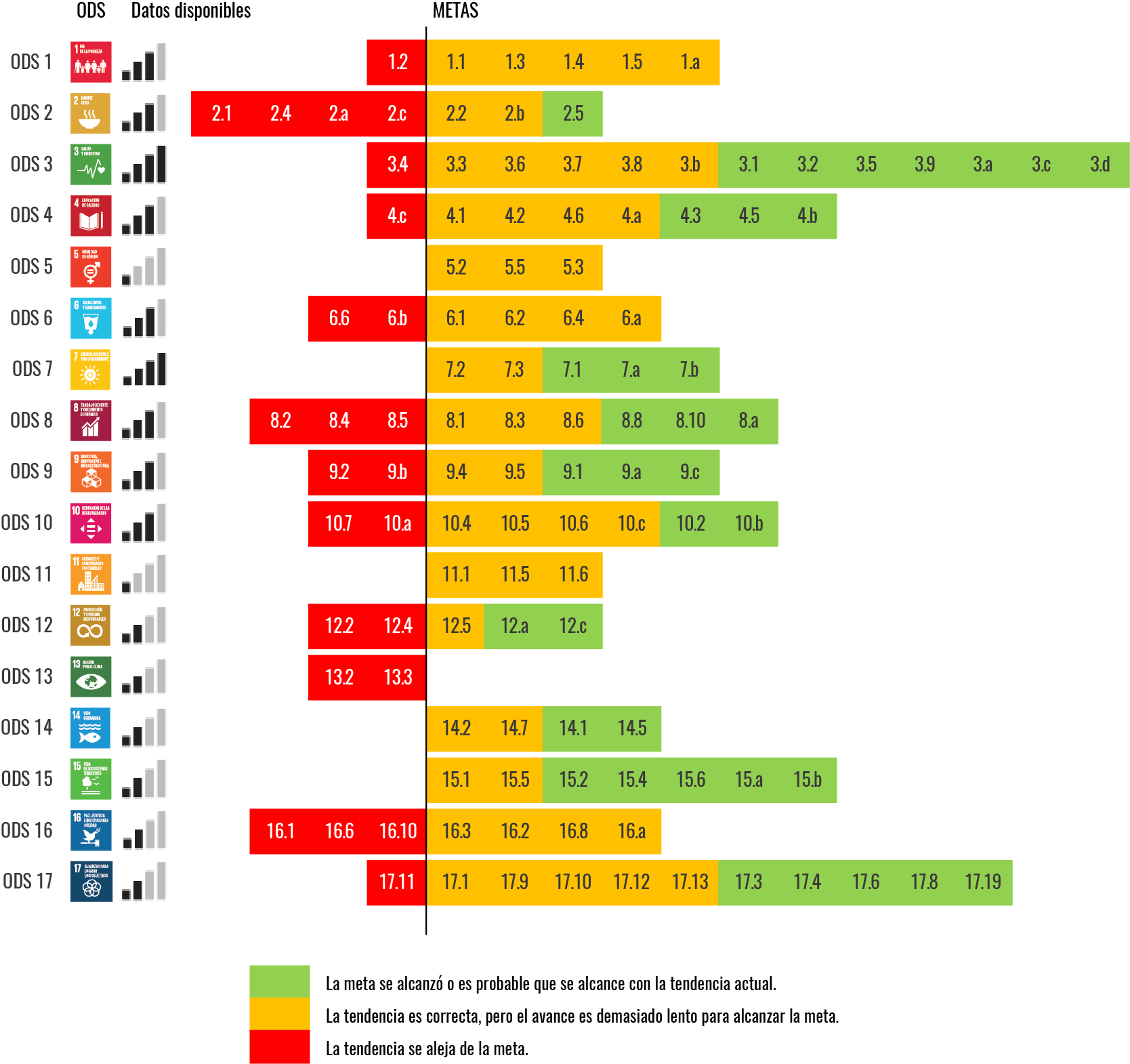When the 2030 Agenda for Sustainable Development was adopted by the 193 Member States of the United Nations at the Summit on Sustainable Development in New York in September 2015 as “a shared plan for peace and prosperity for people and the planet, now and in the future”, it is presented a historic opportunity for Latin America and the Caribbean. Despite the progress, the region must step up its efforts.
With its 17 Sustainable Development Goals (SDGs) at the center, the global agenda includes high-priority issues for the region, such as the eradication of extreme poverty, the reduction of inequality in all its dimensions, inclusive economic growth with work for all, sustainable cities, and the mitigation of climate change, among others.
Only a third of the SDG targets are on track to be achieved by 2030
With just seven years to go before the deadline to meet the Global Goals, we are far from where we should be. Cascading and interlinked crises are jeopardizing the achievement of the SDGs around the world. Despite signs of progress in some areas, the confluence of crises, dominated by the COVID-19 pandemic, climate change and the war in Ukraine, are having knock-on effects on food and nutrition, health, education , the environment, peace and security, as pointed out by the United Nations 2022 Sustainable Development Goals Report.
The Latin American and Caribbean region is no exception. Taking into account the latest results of the projections of ECLAC regional trends for 2030the region shows a mixed performance: only one third of the SDG targets are on track to be achieved by 2030, while for two thirds, policy actions are needed to achieve the targets, either because they need to be accelerated the positive trend observed (46% of the targets) or to reverse the stagnation or setback observed (22% of the targets).
The results differ between goals, with SDGs being 1 (an end to poverty), 10 (reduction of inequalities), 11 (sustainable cities and communities), 13 (climate action) and 16 (peace, justice and strong institutions). the targets that are at a higher risk; on the other hand, objectives 3 (health and well-being), 7 (affordable and clean energy), 9 (industry, innovation and infrastructure), 12 (responsible production and consumption), 15 (life of terrestrial ecosystems) and 17 (alliances to achieve the objectives) would be in better conditions in their transit towards the achievement of the goals.
SDG targets according to their probability of reaching the threshold established for 2030 in the LAC region

The commitment of the countries of Latin America and the Caribbean with the 2030 Agenda is uninterrupted
All the countries of the region have institutions for the implementation of the 2030 Agenda: 18 countries, mostly from the Caribbean, have designated an existing public institution responsible for monitoring, whether attached to the presidency, ministry or public body, while 15 countries have ad-hoc mechanisms. Between 2016 and 2022, 31 of the 33 LAC countries have reported their progress in appropriation, follow-up, and implementation of the 2030 Agenda by submitting at least one Voluntary National Report (VNI) to the High-Level Political Forum of the United Nations on Sustainable Development. The 53 reports submitted by the countries of the region constitute a wealth of information, analysis, processes, good practices, and lessons learned on the road to 2030.
To fulfill the promise of the SDGs, the time for cooperation is now
With so little time to fulfill the vision of the 2030 Agenda, its achievement requires an unprecedented level of collective action. International cooperation and greater commitment from all relevant actors must be urgently expanded to find lasting solutions. The ECLAC Community of Practice on Voluntary National Reports (VNI) for the countries of Latin America and the Caribbean (LAC) and the sixth meeting of the Forum of the Countries of Latin America and the Caribbean on Sustainable Development, to be held at ECLAC Headquarters in Santiago de Chile between April 25 and 28, 2023 under the Presidency of Argentina, provide an opportunity to promote regional cooperation to accelerate actions for the SDGs and pave the way towards the Summit of the SDGs in September 2023. To fulfill the promise of the SDGs, the time for cooperation is now. Only through integrated, inclusive and coherent coordination among all the actors can we be more than the sum of our parts. Together we must create an environment where no one is left behind, and all people can fulfill their true potential, shaping a just and sustainable future for all.







![[Img #74664]](https://thelatestnews.world/wp-content/uploads/2024/12/James-Watson-The-controversial-genius-behind-the-double-helix-150x150.jpg)






